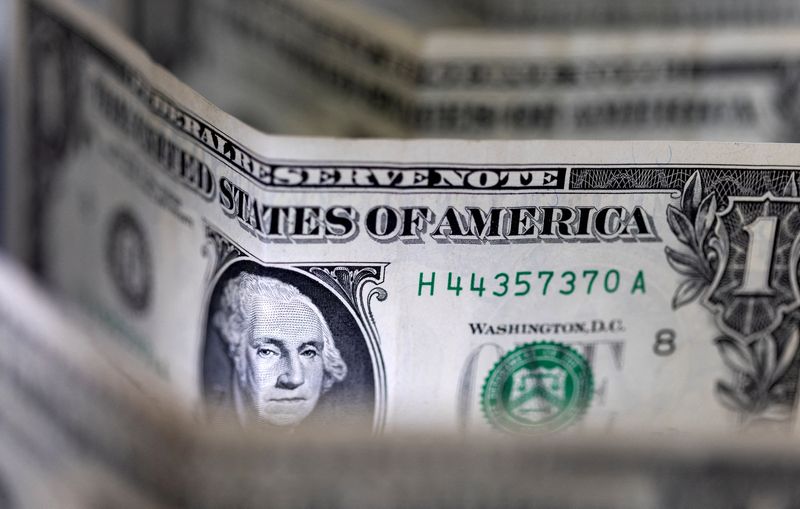Investing.com – The U.S. dollar stabilized in early European trading on Wednesday, holding near a three-week low after the first day of Fed Chairman Jerome Powell’s two-day testimony on Capitol Hill, while the euro held steady amid of political uncertainty.
At 05:25 ET (09:25 GMT), the Dollar Index, which tracks the greenback against a basket of six other currencies, settled marginally lower at 104.770, just above Monday’s near one-month low of 104.622.
Dollar is waiting for Powell part two
The dollar traded within a tight range on Wednesday in the wake of Powell’s first testimony before Congress, with the Fed chairman flagging the recent cooling in the labor market as an increasingly important factor in deciding when the U.S. central bank will begin cutting of interest rates.
Powell also said a rate cut would not be appropriate until the Fed gains “more confidence” that inflation is moving toward the 2% target.
But by saying that high inflation was not the only risk facing the central bank, the Fed chief could be seen as setting the stage for a rate cut in September.
returns to Washington later Wednesday, and traders will look for more refinement in his commentary ahead of Thursday’s crucial consumer inflation data.
“Powell’s prepared remarks focused on two-way risks, reiterating the need for more data input to justify monetary easing,” ING analysts said in a note. “So more of the same rhetoric, and we think Powell is happy to keep markets relatively calm at this stage now that some data is moving in the right direction.”
French political stalemate
rose 0.1% to 1.0819, remaining below Monday’s high in the wake of the second round of the French parliamentary elections of 1.0845 in almost one month.
The poll resulted in a shock election victory for the country’s left-wing alliance after the far-right National Rally triumphed in the first round, meaning the country now faces the possibility of a hung parliament.
“It is becoming increasingly clear that coalition talks in France will be a lengthy and complicated process,” ING said. “Markets would likely favor the technocratic solutions over the others, but it could take weeks to break the deadlock, and we remain concerned that such immobility could unnerve the bond market.”
traded 0.1% higher at 1.2801, not far from Monday’s 1.2845, the strongest since June 12, in the wake of Thursday’s general election.
The yen weakens after Japanese inflation
In Asia, it traded 0.2% higher at 161.56, back in sight of recent 38-year highs.
Inflation data on Japan’s producer price index showed that while factory inflation picked up in June, it still remained relatively weak, raising doubts about whether the Bank of Japan will have enough impetus to maintain tightening policies.
traded 0.1% higher at 7.2760, with the yuan weakening after inflation contracted in June, reflecting little confidence among consumers to spend.
Inflation in the country improved and fell at the slowest pace since February 2023, but still showed Chinese disinflation continued to play a role.
fell 0.8% to 0.6072 after yields held steady and progress was made in bringing inflation back to the annual range of 1% to 3%. The central bank also said it may ease policy on further easing inflation.


